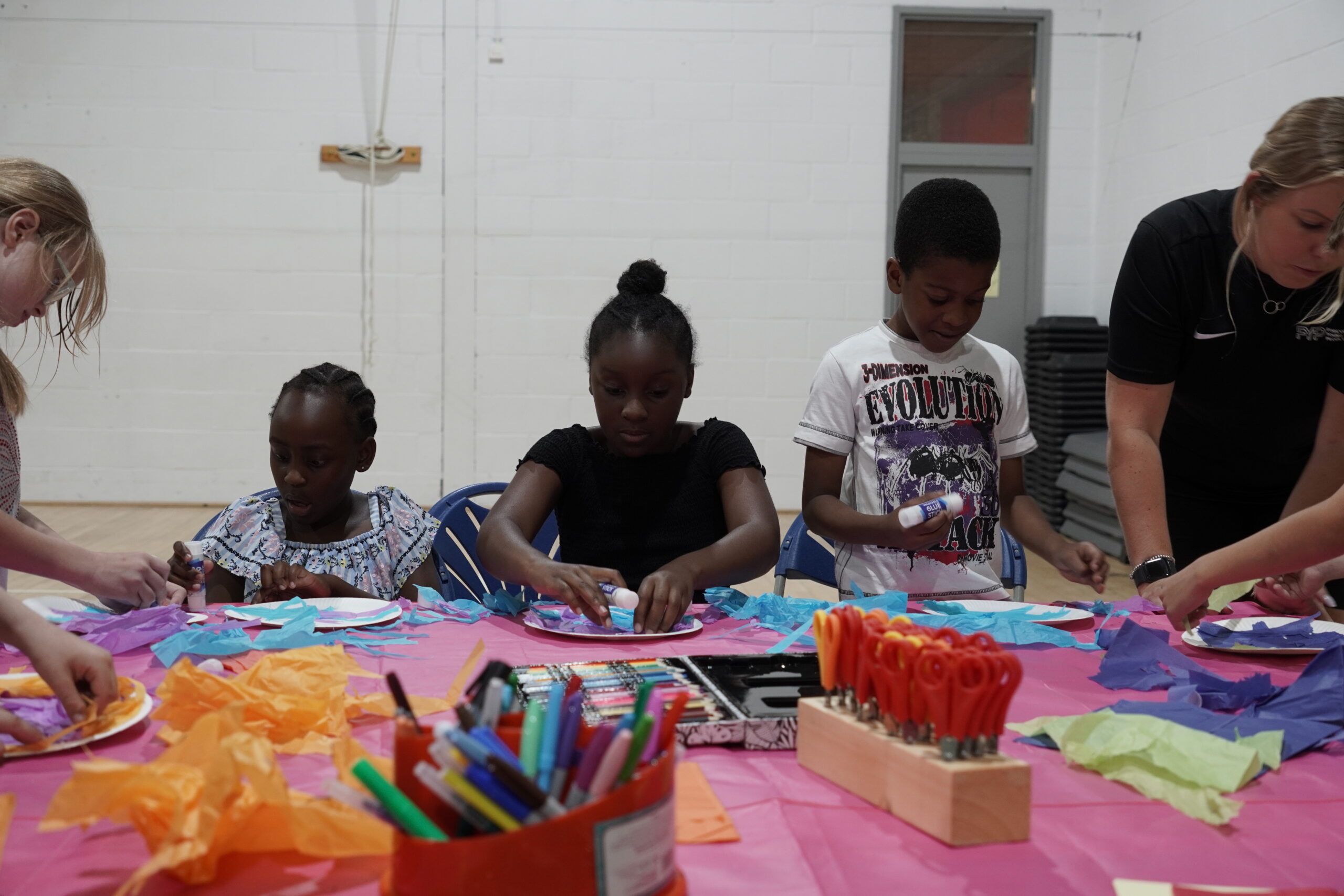Be Curious, Not Judgmental Everyone has a unique story, perspective, and life experiences that contribute to who they are. We often meet people from vastly different backgrounds, with values and cultural norms that may vary drastically from our own. As we go through our lives meeting new people, it’s natural to form opinions of them based on our observations: What they’re wearing? How do they act in public? Instead of succumbing to judgments or harmful stereotypes about others, embracing curiosity can open us up to a world of discovery and compassion for others (and for ourselves). In this blog post, let’s explore the impact being curious instead of judgemental towards other people (and towards yourself) can have on your life! How Does this Work? The human mind is a meaning-generating engine that is continually forming hypotheses, passes judgments, and searches for recurring patterns. This is not a character flaw in and of itself – rather, it was a protective mechanism that kept humans safe for a very long period while we developed. On the other hand, these same characteristics may not serve us well in our interpersonal interactions. Our internal narratives have the potential to be biased, self-destructive, or even cause harm to another person. All three of these outcomes are possible. In the end, our opinions may be the lens through which we see the world, and this lens is, at best, cloudy and, at worst, completely opaque. How Is It to Be Curious and Not Judgemental? I have to constantly do self-examinations in order to work on being less judgemental and more inquisitive. As a result of doing so, I have discovered that it is astounding how many of my presumptions turn out to be incorrect. Being judgemental takes a lot more effort, is less fun, and wastes a lot more energy than being interested, which is something else that I’ve picked up along the way. The more we know about a subject, the more we are able to see things from other people’s perspectives, and the more we question things, the more we will understand both the truth and the wisdom behind them. As the world continues to move at a breakneck speed, those in positions of authority have a continuing need to seek out truth and wisdom. It is to the benefit of leaders to be interested, to avoid passing judgment, and to avoid placing too much stock in what has been successful in the past. How Are You Going to Avoid Being Judgemental While Yet Being Curious? When we let curiosity take the place of judgment, we are able to cultivate greater compassion, understanding, and empathy – this leads to a life that is better and more fulfilling for you! Be More Open Concentrating on grasping the other person’s perspective is one of the most efficient methods to avoid being judgmental while retaining one’s natural sense of curiosity about the world. In order to do this, I make it a point to engage in the practice of active listening, which is paying close attention to the words and body language of another person while also participating in a conversation by way of questioning. This enables them to feel like they are being heard while also helping me obtain a better grasp of their viewpoint. When I’m talking to someone about a topic or a problem, I make it a point to avoid jumping to conclusions based on my own perspectives or the things I’ve been through. Instead, I make it a point to have an open mind and be prepared to consider other points of view. Be Conscious of Who You Are Being conscious of the ways in which my own feelings might colour my perspective of other people is another essential component of avoiding passing judgment. It is important for me to recognise that these reactions are only natural and that it is key for me to find healthy coping mechanisms so that I can view conversations without any preconceived notions or biases. When we are feeling overwhelmed or stressed out by life events, it can be easy for us to react harshly toward others who may not share our views or understand our feelings. When this happens, it is important for me to recognise that these reactions are only natural and that it is important for me to find healthy coping mechanisms. For instance, if I am feeling particularly emotional before having a discussion with someone about a contentious subject, then I will take some time for myself beforehand to calm down and clear my head so that I can approach the conversation with as much objectivity as possible. This will allow me to approach the conversation with the most amount of emotional distance possible. Go Beyond Your Comfort Zone Participating in activities that are beyond one’s comfort zone is, last but not least, an efficient method of avoiding judgment while simultaneously maintaining one’s natural curiosity. People may become more conscious of their own biases and prejudices by engaging in activities that are out of the ordinary or that they are not used to. This can help them see events from multiple perspectives. We may become more tolerant of people who are different from us if we challenge ourselves to go outside of our comfort zones and learn more about the cultures and ways of life of people from other countries and communities. Here are some tips to achieve these targets more easily: Give things a chance that you typically wouldn’t, such as trying a new sort of cuisine or music that you wouldn’t generally listen to Compile a complete list of the facts Be interested in why you may be feeling a certain way about a scenario rather than passing judgment on whether it is “good” or “bad.” Switch “Why?” to “Why Not?” in your question Instead of criticising anything that is outside of your comfort zone by inquiring “Why?” about it, review the
Achieving Emotional Balance
Achieving Emotional Balance In a dynamic world like ours where life seems to be moving faster and faster with so much to keep up with, life can get so stressful and no matter how positive we try to be, unexpected turns sometimes happen, leaving us overwhelmed. Emotions are an essential part of our being, and how we deal with both negative and positive emotions plays a major role in shaping our life. This is why emotional balance is important. It is the ability to stabilise our feeling and reaction in the face of unpleasant circumstances, rather than reacting automatically. Being emotionally balanced does not mean you don’t have unpleasant feelings; it means you can control your reaction towards them. If you have been feeling elevated levels of anxiety and confusion about how to handle them, there are simple, actionable steps you can apply to better control your emotions. So let’s have a look at what you can actually do towards improving your emotional balance. Steps to Achieving Emotional Balance Being overly swayed with negative emotions will leave you anxious, stressed and cause unhealthy reactions. Furthermore, it can also develop unhealthy coping mechanisms, which is something you don’t really want. No matter how much you struggle with this, you can achieve emotional balance by applying the following strategies. 1. Be Self-Aware Being self-aware helps you identify your weak spots, cultivate healthy habits, and let go of the not-so-good ones. This helps you recognise the emotions you are feeling and the reactions they trigger which is essential for better emotional health. Once you recognise these emotions, acknowledging the negative feelings rather than suppressing them is a way to deal with them. This way, you start to brew a healthy relationship with your emotions and are able to catch any automatic reaction of yours. It is helpful to verbalize how you feel at that instant, e.g. “I am angry at this situation”, “I feel scared”. Naming your emotions nullifies their power and makes you react more consciously. If you find this difficult, try journaling, this is another way to let out your feelings. 2. Develop a Healthy Sleeping Habit Inadequate sleep can put you in a foul mood, which means that the body requires sufficient sleep for emotional and physical wellbeing. Though some circumstances can cause you to promote insomnia, it is crucial to find ways to increase your chances of a good night’s rest. If you have difficulty sleeping, there are some routines you can start to improve your quality of sleep. Try to develop a sleeping pattern and stick to it, reduce caffeine intake, and avoid taking your devices with you to bed. Also invest in the setup of your bedroom, great lighting, and comfortable beddings, as well as pre-bed meditation and breathwork. 3. Practice Gratitude Finding things to be thankful for will improve your outlook on life It could be difficult to see the good in inconvenient situations but focusing on the positive, no matter how little, improves your emotional state. Pause at intervals throughout the day to identify things you are grateful for. Make sure you are genuine with your feelings, and if you don’t have something to be thankful for currently, think about any moment in the past you loved. This is a good way to achieve emotional balance. 4. Learn to Manage Stress Identifying the signs of stress and devising effective management techniques help with emotional balance. When distressing situations occur, try to spot your reaction, and learn to pause before responding. Your breathing can serve as pointers to your stress level if you find yourself breathing irregularly or erratically, and take deep breaths to regain control. Meditation and yoga are also perfect stress management strategies, as it is a great tool for emotional balance through self-reflection and self-discovery. Conclusion Remember that the difficult times are only temporary, and are a normal part of life. The onus then lies on you to acknowledge these feelings and find the right balance to work through them. If you are having a hard time controlling your emotions, practicing the tips in this post will help you become more emotionally balanced, so do consider those! Share this blog! Thank you for reading this blog post. If you found it insightful or helpful in any way, why not share this with others online?
“Approaching Your GCSE Exams: Tips for Success and Keeping Perspective”
“Approaching Your GCSE Exams: Tips for Success and Keeping Perspective” If you’re a young person who is about to sit your GCSE exams, you might be feeling overwhelmed, nervous, or stressed. It’s perfectly normal to feel this way – after all, your GCSEs are an important milestone in your academic journey, and they can have a significant impact on your future. However, it’s important to remember that you have the power to take control of your GCSEs and approach them in a way that will help you succeed. Here are some tips to help you as you approach your GCSE exams: 1. Start early The key to success in your GCSE exams is preparation, and the earlier you start preparing, the better. Start revising as soon as possible, and make a study plan that covers all the topics you need to know. Break your revision down into manageable chunks, and give yourself plenty of time to cover everything. 2. Use different revision techniques Everyone learns differently, so it’s important to find revision techniques that work for you. Try a variety of methods, such as flashcards, mind maps, or practice questions, to see what helps you to remember the information best. 3. Stay organised Keep track of your revision schedule, deadlines, and exam dates using a planner or calendar. This will help you to stay on top of your revision and make sure you don’t miss any important deadlines. 4. Take care of yourself It’s important to look after yourself during the exam period. Make sure you get plenty of rest, eat healthily, and exercise regularly. Taking care of your physical and mental health will help you to stay focused and perform your best in your exams. 5. Practice past papers Practicing past papers is one of the most effective ways to prepare for your exams. It will help you to familiarise yourself with the format of the exam and the types of questions you can expect. It will also help you to identify any areas where you need to improve. 6. Seek help if you need it If you’re struggling with a particular topic, don’t be afraid to seek help. Talk to your teacher, classmates, or a tutor for extra support. There are also plenty of resources available online, such as revision guides and videos, that can help you to understand difficult concepts. 7. Stay positive Finally, it’s important to stay positive and believe in yourself. You’ve worked hard to get to this point, and you’re capable of achieving great things. Remember to take breaks, relax, and stay positive throughout the exam period. It’s also important to remember that while GCSEs are important, they shouldn’t be the only measure of your potential or future success. Your GCSE results may open doors to certain opportunities, but they don’t define your worth or limit your potential. Many successful people have overcome academic setbacks or pursued alternative routes to achieve their goals. So, while it’s important to take your GCSE exams seriously and do your best, don’t let the pressure of exams make you feel like your future is completely dependent on them. There are many paths to success, and as long as you work hard, stay focused and remain open to new opportunities, you can achieve your goals regardless of your GCSE results. Remember, success is not only about grades; it’s about perseverance, dedication, and having a positive attitude towards life. In conclusion, your GCSE exams are an important milestone, but they don’t have to be overwhelming. By following these tips, you can approach your exams with confidence and give yourself the best chance of success. Good luck Share this blog! Thank you for reading this blog post. If you found it insightful or helpful in any way, why not share this with others online?
Embracing Collaboration Over Competition
Embracing Collaboration Over Competition In a world often driven by cutthroat competition, the tide is turning towards a more profound ethos: collaboration over competition. As we step into 2024, this transformative motto serves as a beacon guiding individuals, businesses, and communities towards unparalleled success. The Shift in Mindset Gone are the days when success was measured solely by outshining others. Today, the focus is shifting towards the collective growth that collaboration fosters. Embracing this ethos acknowledges that when we work together, the possibilities are not just expanded but unlimited. Building Stronger Networks One of the most significant advantages of prioritizing collaboration is the establishment of robust networks. By connecting and partnering with like-minded individuals and organizations, we create an ecosystem where knowledge, resources, and support flow seamlessly, benefiting all involved. Fostering Innovation Collaboration breeds innovation. When diverse minds and talents converge, they bring in a multitude of perspectives, sparking creativity and pushing the boundaries of what’s possible. In 2024, the emphasis on collaboration will become the catalyst for groundbreaking discoveries and technological advancements. Nurturing a Culture of Support Choosing collaboration over competition nurtures a culture of support and empowerment. Instead of viewing others as rivals, we celebrate their achievements and lend a helping hand when needed. This culture not only propels personal growth but elevates the collective potential of society as a whole. Business and Beyond In the business realm, the shift towards collaboration marks a pivotal turn. Companies embracing this ethos prioritize partnerships, co-creation, and shared goals. From start-ups to conglomerates, the emphasis on collaboration in 2024 will redefine success strategies, leading to sustainable growth and innovation. Impact on Communities At the heart of this motto lies its impact on communities. Whether local or global, collaboration fosters unity, compassion, and progress. Initiatives aimed at solving societal challenges flourish when diverse stakeholders come together, pooling their resources and expertise for the greater good. Embracing the Change Making the shift towards collaboration might require rewiring our mindsets and unlearning past notions of rivalry. However, the rewards it promises in terms of personal fulfilment, professional success, and societal progress are immeasurable. Conclusion As we embark on the journey through 2024, let us rally behind the mantra of collaboration over competition. Together, we can create a world where collective success is not just an aspiration but a reality—a world where collaboration becomes the cornerstone of our achievements, shaping a brighter future for generations to come. Lets go 2024! Share this blog! Thank you for reading this blog post. If you found it insightful or helpful in any way, why not share this with others online?




